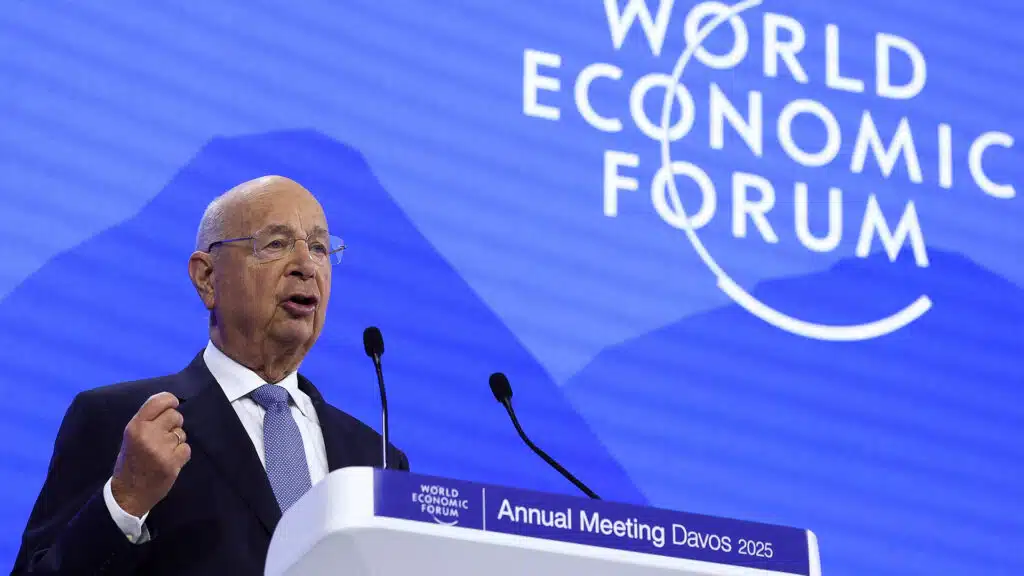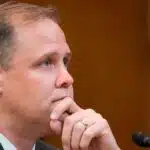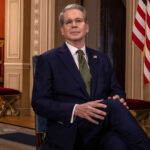ZURICH, April 21 — Klaus Schwab, the founder and long-time chair of the World Economic Forum (WEF), has officially stepped down as chair of its Board of Trustees, ending more than five decades at the helm of the influential organisation that became synonymous with the global elite’s annual winter retreat in Davos.
In a statement released by the Geneva-based WEF, Schwab said: “Following my recent announcement, and as I enter my 88th year, I have decided to step down from the position of Chair and as a member of the Board of Trustees, with immediate effect.”
The WEF board accepted his resignation at an extraordinary meeting held on April 20. Vice Chairman Peter Brabeck-Letmathe, former chairman and CEO of the Nestlé Group and former chairman of Formula One, will serve as interim chair while a global search for Schwab’s successor is launched.

Highlights
- Klaus Schwab, 87, has resigned as WEF Chair, effective immediately.
- Peter Brabeck-Letmathe named interim chairman.
- Schwab founded the World Economic Forum (WEF) in 1971 to promote dialogue between global business and government leaders.
- The Davos meeting has become a symbol of globalization, increasingly criticized in recent years.
- The WEF faces scrutiny over its internal culture and relevance amid geopolitical tensions and a populist backlash.
The End of a Globalist Era?
Klaus Schwab founded the WEF in 1971 with a vision to create a platform for corporate executives and political leaders to collaborate on addressing major global challenges. Over the years, the January gathering in the Alpine town of Davos transformed into a key annual checkpoint on the global economic and political calendar.

With a mission steeped in globalism, Davos grew into an icon of international cooperation and corporate influence, but also one of growing controversy. While Schwab was widely respected as a convenor of power, recent years have seen mounting criticism from across the political spectrum.
Mounting Criticism and Internal Challenges
The Davos summit, once praised for its facilitation of cross-border cooperation, is now often portrayed by critics as an “elitist talking shop” disconnected from the lives of everyday people. Accusations of insularity, opulence, and inaction have tarnished the image of the WEF, particularly amid growing global inequality and economic uncertainty.
In 2024, The Wall Street Journal reported on internal investigations into allegations of workplace harassment and discrimination within the WEF. The organisation denied the allegations, but the story highlighted growing scrutiny of WEF’s internal governance and corporate culture.
From Visionary to Vulnerable Institution
Schwab, a German-born engineer and economist, foresaw as early as 1996 the potential backlash against globalisation. In an op-ed with Claude Smadja, he wrote that the “mounting backlash against [globalisation’s] effects… is threatening a very disruptive impact on economic activity and social stability.”
This foresight proved prophetic as geopolitical shocks—from Brexit to the Trump presidency, and most recently the war in Ukraine—destabilised long-standing global alliances. Meanwhile, more protectionist U.S. trade policies have reduced enthusiasm for open markets.
Amid these dynamics, analysts have questioned the continued relevance of the WEF, seeing it as an institution at a crossroads.
Looking Ahead
With Schwab’s departure, the WEF enters a transition phase. The choice of his successor will signal the direction the Forum intends to take: whether it will recalibrate to meet the demands of a more fragmented and multipolar world, or double down on its foundational globalist ideals.
Regardless of the path ahead, Schwab’s resignation marks the closure of a significant chapter in global economic diplomacy.







